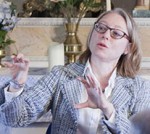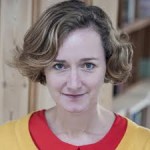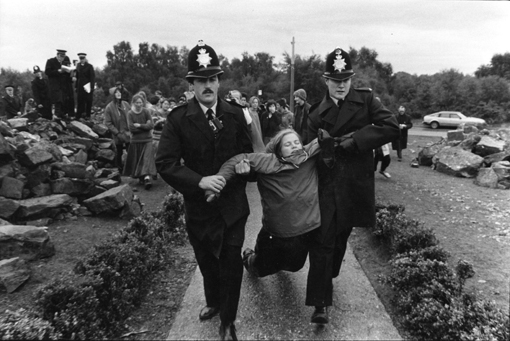Sisterhood and After: The Women’s Liberation Oral History Project
The Women’s Liberation Movement Oral History Project aims to provide a permanent archive on the pioneering work undertaken by feminists from the 1960s to the 1980s. Dr Margaretta Jolly, Reader in Cultural Studies, University of Sussex and Dr Polly Russell, Lead Curator, The British Library, provide a guide to a valuable historical resource.
About the Authors:
 Dr Margaretta Jolly is a cultural critic with a particular interest in life writing and life history. Her work has focused on auto/biography and oral history, feminist theory and social movement history. She is Reader in Cultural Studies, University of Sussex. Her publications include In Love and Struggle: Letters in Contemporary Feminism (2008, Columbia University Press).
Dr Margaretta Jolly is a cultural critic with a particular interest in life writing and life history. Her work has focused on auto/biography and oral history, feminist theory and social movement history. She is Reader in Cultural Studies, University of Sussex. Her publications include In Love and Struggle: Letters in Contemporary Feminism (2008, Columbia University Press).
 Dr Polly Russell, Lead Curator, The British Library where she is responsible for developing collections and services in the fields of Politics and Public Life, Food Studies and Women’s History. She is also a freelance food consultant and writer and works with Heston Blumenthal as his historical researcher.
Dr Polly Russell, Lead Curator, The British Library where she is responsible for developing collections and services in the fields of Politics and Public Life, Food Studies and Women’s History. She is also a freelance food consultant and writer and works with Heston Blumenthal as his historical researcher.
The Women’s Liberation Movement Oral History Project – Sisterhood and After (SAA) – grew out of the determination that the voices of those who lived through the extraordinary feminisms the 1970s and 80s be remembered. Margaretta Jolly, in partnership with Polly Russell, a curator-researcher at the British Library, and supported by scholar-activist advisors, happily completed the project in 2014, having been funded by the Leverhulme Trust over three years to capture and interpret sixty life history interviews with core activists across the UK.[1]
Our primary aim has been to create a permanent multimedia archive in a beautiful and powerful library where subsequent generations can discover the work of the movement pioneers of the 1960s-80s. The oral history method but also digital audio/visual resources have been vital in making this happen. In this article we show how the already visceral effect of intimate interviews was enhanced by the design of a website and supporting films, particularly valuable for capturing young and activist audiences as well as the more usual academic ones. We also argue that web technology can help mitigate the distance between academic and non-academic audiences as well as allowing more fluidity in the interpretation of archival material. Finally, we consider the role of a sound installation in the project.
The website, films and sound installation of course would not exist without the full oral histories. Archived, along with full transcripts, these recordings and transcripts are available for listening on-site at the British Library in London to library readers, subject to interviewee permission.[1] In attempting to understand the impetus and trajectory of an interviewee’s activism, the recordings cover family background, childhood, education, work experience and relationships. These recordings therefore document an individual’s engagement with the WLM while taking account of the context in which this activism was situated. The average length of these recordings is 7 hours but many are significantly longer. For those interested in the history and sociology of social movements, in women’s history, in twentieth century history, gender studies or narrative identity, the SAA oral archive is a rich resource.

Rebecca Johnson being arrested (image used with permission from Rebecca Johnson).
—————
[1] In line with library policy, the British Library & University of Sussex required all interviewees to sign an interview release form stipulating how their recordings could be accessed. Interviewees were able to ‘close’ sections or the entirety of their recordings for a named number of years if desired.
—————
 Learning on Screen
Learning on Screen